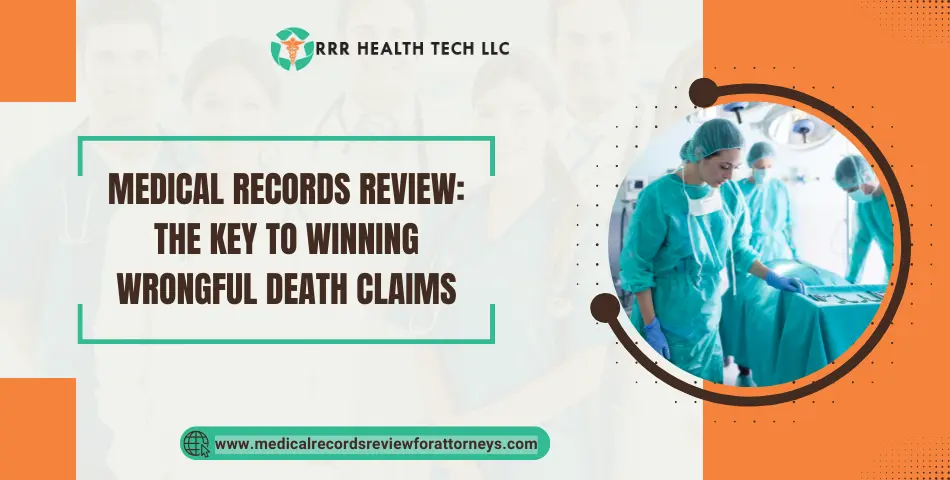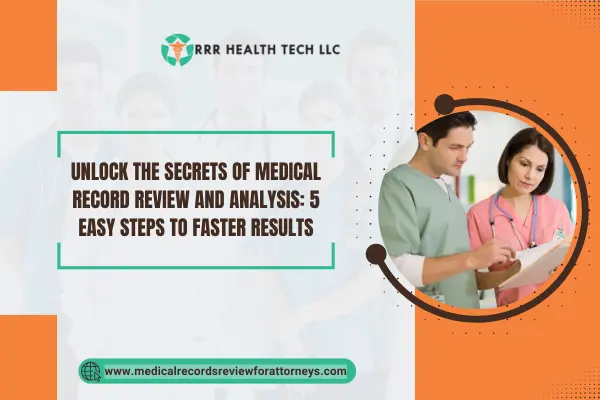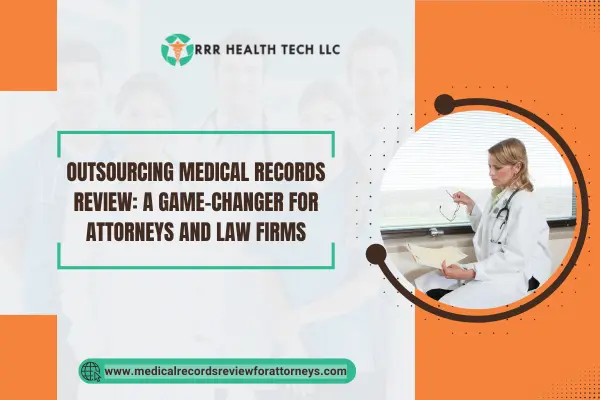
Introduction
Wrongful death claims arise when a person dies due to another party’s negligent or wrongful act. For these reasons, the cases often become complicated legally and medically. Therefore, medical records review plays a significant role in these claims as it provides critical evidence for establishing death’s cause and circumstances.
Such examination of medical records by attorneys is important in proving negligence or malpractice claims making it one of the substantial strategies to ensure justice is pursued.
Understanding Wrongful Death Claims
Wrongful death claims occur when someone loses his life because of negligence, or any wrongful act done by another party. These lawsuits are based on the legal principle of negligence that requires failing to exercise reasonable care leading to injury or damage.
Elements for wrongful death case must be established:
- Duty of Care: The defendant had a duty to take reasonable care towards the deceased.
- Breach of Duty: The defendant failed in this duty through their actions or omissions.
- Causation: Breach of duty resulted directly in death.
- Damages: As such, loss of life led to immediate family members being left with quantifiable losses.
- Failure to comprehend these aspects forms the basis for weak arguments on wrongful deaths.
The Role Medical Records Play in Wrongful Death Cases
Medical records are essential for proving medical malpractice–related causes for an individual’s demise. These documents contain detailed information about what course from one’s health history took place between admission and diagnosis stage.
Examples include:
- Autopsy reports which provide impartial examinations that explain how someone died.
- Hospital admission notes which record initial observations and therapy schedules.
- Treatment records that explain given drugs, performed operations, and patient reactions. For claims substantiation, accurate enumeration must be provided; otherwise, no link between medical error and the victim’s departure is possible.
Legal Benefits of Medical Record Review in Wrongful Death Lawsuits
Attorneys benefit from reviewing patients’ files as below:
- Collecting Evidence: A systematic review of medical records is paramount for gathering evidence in legal cases and capturing all salient details.
- Establishing Causation: Reliable medical documentation is required to demonstrate the defendant’s conduct contributed to the victim’s death.
- Quantifying Damages: Properly maintained records help in quantifying damages that survivors including bills, loss of income, and emotional pain have suffered.
This way lawyers can establish a sound basis for claims that would be made by their clients through well-structured cases provided with valuable information from appropriate sources like medical records.
Challenges Faced by Attorneys in Reviewing Medical Records for Wrongful Death Claims
Attorneys often face significant hurdles when reviewing medical records due to the complexity of information and the volume of data involved. Some common challenges include:
- Deciphering complex terminology: Many jargons in these documents are hard to understand if one does not possess any background knowledge in medicine.
- Extracting relevant information: Attorneys must use caution when extracting key details from long documents such as progress notes and diagnostic reports.
Gathering evidence for wrongful death cases may involve considerable difficulties due to an intricate interaction between medical and legal issues involving related intricacies like patient outcomes based on documentation.
Strategies for Attorneys to Effectively Manage Medical Record Review in Wrongful Death Cases
Medical record review is an extremely important aspect for attorneys dealing with wrongful death claims. The following are some practical tips:
- Organize Records in an Orderly Manner: Create a systematic approach, such as chronological order or by type of document, to keep track of extensive medical data.
- Use Technology Review Tools: Utilize software like OCR (Optical Character Recognition) and EHR (Electronic Health Records) systems to search and categorize information quickly.
- Consult with Medical Specialists: Collaborate with experts who understand complex medical terminology and can provide insights that strengthen the legal argument.
- Develop Checklists: Use detailed checklists to ensure no critical piece of information is overlooked during the review process.
By so doing, it is possible to reduce this process through better workflow management, leading to an increased likelihood of favorable outcomes when seeking justice for wrongful death claims.
The Importance of Expert Medical Opinion in Establishing Negligence Through Medical Records Review
Qualified medical practitioners have a major role in wrongful death claims. They are required to give their professional opinions on whether actions or omissions documented in medical records amount to negligence.
Expert medical opinion helps lawyers put together a timeline suggesting the sequence of events culminating in death. This structured timeline is invaluable for highlighting any deviation from standard care protocols that may have contributed toward the fatal outcome.
Conclusion:
Consulting experienced attorney services becomes paramount when claiming compensation for wrongful death claims. You should look out for someone who appreciates scrutiny of medical records as one way through which to win your case.
Medical records, autopsies, and expert opinions can be scrutinized by a skilled litigator to show negligence that is the cause of death. By doing this, there are higher chances of having justice done and getting the compensation.
Get a accurate medical records review for wrongful death cases
FAQs (Frequently Asked Questions)
How do medical records play a role in wrongful death cases?
Medical records are essential in proving what caused someone’s life to end unexpectedly with the significance of showing how their death could be related to malpractice through healthcare providers.
What challenges do attorneys face when reviewing medical records for wrongful death claims?
For instance, lawyers find it hard to decipher complex medicinal terms used, manage extensive volumes of data, and pull-out relevant information supporting their argument. This evidence-gathering process can become complicated through these challenges.
Reasons why expert medical opinion is important in wrongful death claims
Experts’ opinions are crucial because they help in determining whether incidences or errors documented in hospital files amount to negligence that resulted in the patient’s death. They add significant weight to such cases.


